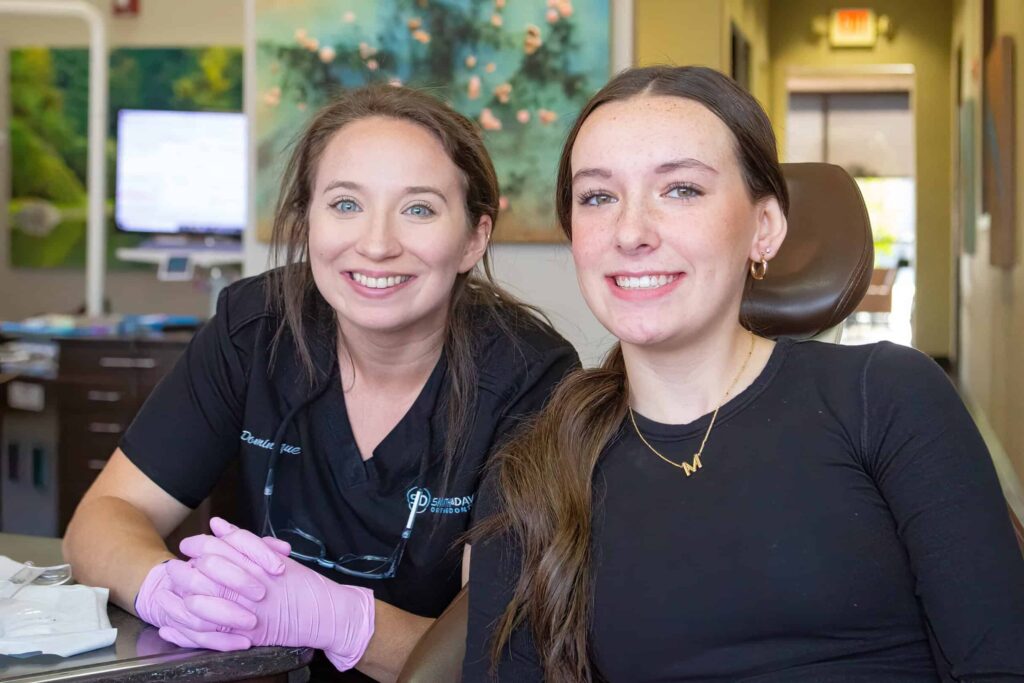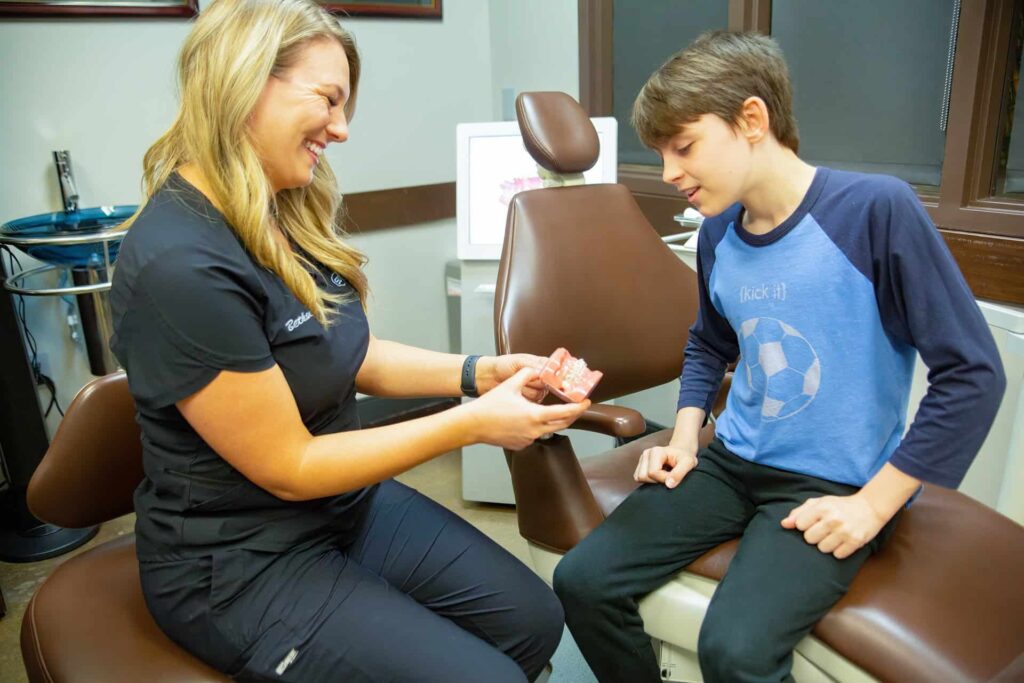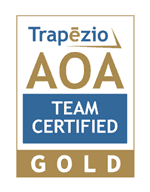Mouthguards are a great way to protect your teeth and braces during treatment, especially when playing sports. A nightguard, a type of mouthguard for grinding teeth with braces, will also protect you.
Mouthguards and nightguards can get dirty quickly and put germs back into your mouth. It’s essential to clean your mouthguard regularly. But what’s the best way to clean a mouthguard for braces?
Smith & Davis Orthodontics offers some tips on caring for mouthguards and nightguards, including how to clean them properly.

Why Do I Need a Mouthguard for Braces?
Mouthguards protect braces and the mouth from sudden impacts. They are usually worn while playing sports. Getting hit in the mouth during sports can be very bad for your braces. It can break wires and loosen or knock off brackets.
A hit to the face during sports can also force your lips, cheek, and tongue against your braces, which could injure them. A mouth injury could complicate or delay your braces treatment. That is where a mouth guard for braces can help.
A mouthguard puts a barrier between your braces and the soft tissue in your mouth. It protects your mouth from serious injury if you’re hit by a ball, bat, hockey stick puck, or even someone’s head or arm.
Can I Wear a Nightguard for Braces?
Some people have a habit of grinding their teeth, a condition called bruxism. To stop this habit, they sometimes wear a nightguard.
You can wear a nightguard with braces to stop bruxism. A nightguard is similar to a mouthguard but is usually worn to stop teeth grinding at night. A night guard for bruxism is generally smaller than a mouthguard for sports because it doesn’t need to protect you from flying objects.
Whether you use a night guard for braces or a mouth guard, you need to clean both regularly to make sure they don’t make you sick. Here are a few tips on how to clean your mouth guard correctly.
5 Best Ways to Clean Your Mouthguard
There are several ways to clean your mouthguard, some better than others. Some people clean their mouthguards with toothpaste, which works fine as long as the toothpaste is non-abrasive. Hot water can help kill germs but also warp certain types of mouthguards.
Using Denture Cleanser to Clean Mouthguards
Cleanser tablets can reach the nooks and crannies of your mouthguard and deep clean it, removing germs. Both denture and retainer cleansers can be used to clean your mouthguard. They usually involve dissolving the tablet in warm water and soaking your mouthguard for 5-10 minutes.
Be sure the water isn’t too hot, or it can warp your mouth guard. Also, be sure to rinse the mouthguard well before using it.
Using Toothpaste to Clean Mouthguards
Toothpaste and a soft-bristled brush or a washcloth can clean your mouthguard. However, you need non-abrasive toothpaste, as abrasive toothpaste can make your mouthguard cloudy. That may be an issue for those with custom mouthguards with printed designs.
Avoid toothpaste with sparkles or mint pearls because they can cause microabrasions and damage your mouthguard. Before using toothpaste, dissolve it in warm water a bit. The toothpaste will help clean away bacteria and germs that can make you ill if you put the mouthguard in your mouth.
Using Mouthwash to Clean Mouthguards
You can clean your mouthguard with mouthwash, but avoid the type with alcohol, which can damage it. To dilute the mouthwash, use a capful in a glass, then add water until it covers the mouthguard. To clean the mouthguard, soak it in the mouthwash for about 30 minutes. Then, rinse it well and dry it so it’s ready for use.

Using Baking Soda to Clean Mouthguards
You can use baking soda to clean and sanitize your mouthguard or nightguard. It’s best to mix baking soda and water to create a paste similar to toothpaste.
Use equal parts baking soda and water to create the paste. Use a cloth or soft-bristled toothbrush to apply the baking soda paste and clean your mouthguard.
Use Household Items to Clean Mouthguards
You can clean your mouthguard with vinegar or hydrogen peroxide or soak it in either. After a 30-minute soak, be sure to rinse it well.
You should NOT use other household cleansers on your mouthguard, such as ammonia or bleach. These are toxic and can make you ill, damage your teeth and gums, and cause your mouthguard to discolor, warp, or become brittle.

How Often Should I Clean My Mouthguard?
You should clean your mouthguard daily or after each use. Then, store it somewhere safe, where pets or small children can’t damage it.
Clean your mouthguard daily with toothpaste, mouthwash, or baking soda. Then, deep clean it at least two to three times a week with cleanser tablets, peroxide, or vinegar. This will keep your mouthguard clean and germ-free.
When Should I Replace My Mouthguard?
Mouthguards don’t last forever, and a mouthguard for braces will last even less time as your teeth move and destroy the fit.
Boil-and-bite mouthguards can be reshaped two or three times before they need to be replaced. Other mouthguards should be replaced when the fit becomes too tricky so that the progress of your braces treatment is not slowed.
Professionally made mouthguards usually last up to 5 years, but they may last a shorter time if used often or with braces. Over-the-counter mouthguards generally only last about 6-12 months.
Here are some signs you need to replace your mouthguard:
- Discoloration
- Cracks
- Bad fit
- Deformed shape
- Holes
- Bad smell, even after soaking
- Thinning of the material
- Irritation to the gums or teeth
Braces and Mouth Guards in Rogers, AR
Mouthguards are excellent protection for braces, but you must care for them properly. Without that care, your mouthguard can fail to protect you properly and even make you ill. Do you have more questions about mouthguards? Smith & Davis Orthodontics in Rogers, AR, is ready to help. Schedule a consultation with us today!






